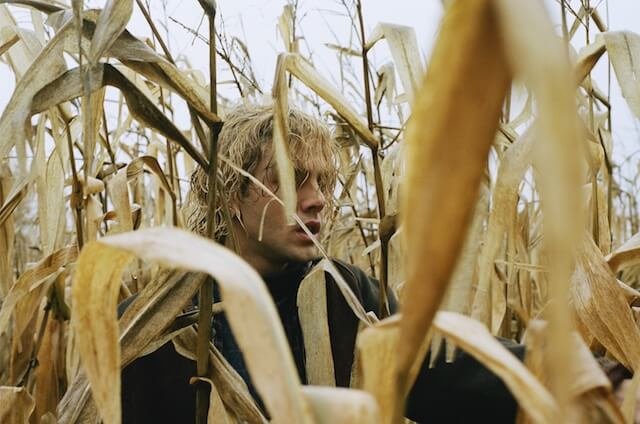‘Tom at the Farm’ “Tom at the Farm” is the outlier among the five films Xavier Dolan has directed — the one that’s a thriller (sort of), the one that’s more straightforward (kind of), the one that’s taken two years to reach American theaters. (His subsequent film, “Mommy,” beat it by half a year.) And yet despite this — and despite it being his first stab at an adaptation — it’s not too removed from his oeuvre. It’s slower and moodier than “I Killed My Mother,” “Heartbeats” and “Laurence Anyways,” but it’s just as formalist and darkly funny, and just as interested in finding sympathy for people who don’t necessarily get it or even maybe deserve it. The devil in this case is Francis (Pierre-Yves Cardinal), a homophobe in the sticks who’s none-too-pleased when the family farm gets a visit from Tom (Dolan, in a tangled mop of blond hair). Francis’ brother recently died, and Tom was his boyfriend. That’s news to his mother, Agathe (Lise Roy), who Francis fed a line about a fictitious girlfriend. Francis does not take kind to Tom, and gets in his face in a way that betrays his own latent longings, as well as his own less suppressed capability for unspeakable violence. RELATED: Xavier Dolan looks back on “Tom at the Farm,” his first film he can watch Typically prone to slow-mo tableaux indebted to Wong Kar-Wai and swooning sequences set to pop music, Dolan uses Tom in part as an exercise at stripping everything down. Gabriel Yared’s nerve-jangling score, mostly piercing strings, is deployed sparingly and effectively. Forcing himself to tackle the occasional long dialogue — the source is a play by Michel Marc Bouchard — Dolan gets more careful with his shot compositions, which tend to play out from off-kilter angles or peering from other rooms. When things get intense — when Francis attacks Tom in his bed or chases him through cornfields — Dolan gets expressionistic, but only by placing the camera in such close proximity to the action that it’s an abstract blur. A major confrontation is performed in four simple close-ups, not unlike a scene out of “Heartbeats.” The other thing that’s right in Dolan’s wheelhouse is the way “Tom” refuses to offer a simple, even facile message of tolerance. Dolan’s Tom can be a bit of a grouchy brat, and Dolan even seems to mock his anger towards “rednecks,” however justifiable. Francis becomes both a closet case and something deeper, more primal, more troubling. There is no simple resolution, and what amounts to the third act twist is more of a confirmation of one’s worst fears, laid out in a patient, Corey Hart-backed bar chat. Dolan is not content to simply reward viewers for their progressive attitudes, correct though they are. He’s drawn to the dark side, and even a little empathetic, unreciprocated though that stance may be.
Director: Xavier Dolan
Stars: Xavier Dolan, Pierre-Yves Cardinal
Rating: R
4 (out of 5) Globes
‘Tom at the Farm’ is Xavier Dolan’s oddest film yet

Amplify
Follow Matt Prigge on Twitter @mattprigge


















